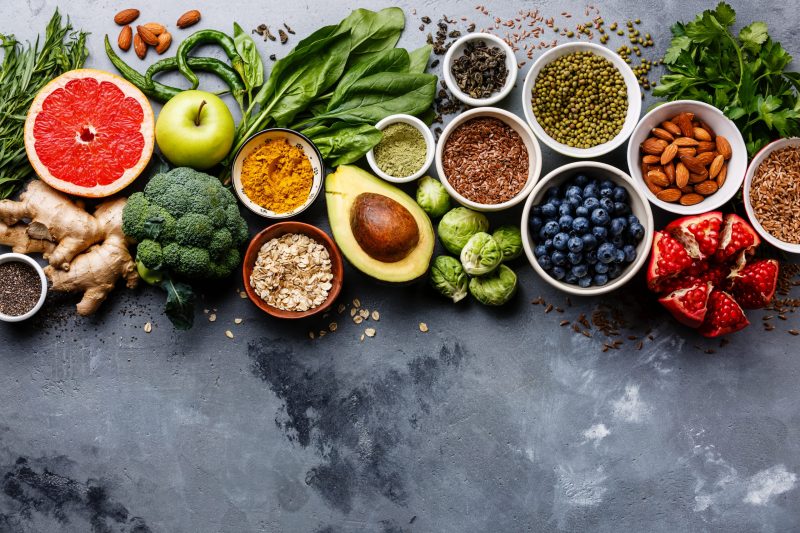 Of course, fat is not necessarily “bad.” Our bodies need fat for proper function, from energy supply to sex hormones production, to fully absorbing essential vitamins like A, D, E, and K. The problem is that too much body fat increases the production of powerful chemicals, in particular cytokines, which causes inflammation. Like with fat, inflammation has a proper role. Acute inflammation—think a cut on the skin—is the first step of the healing process. When injured, your body activates your immune system to help the wound.However, chronic inflammation can overload the immune system and eventually damage tissues, which impairs circulation, metabolism, and hormones that impact not just fertility, but also cardiac and endocrine health.You don’t need to lose a lot of weight to curb inflammation and see positive results. In fact, losing just 5 percent of your body weight can enhance fertility, according to dietitians at Loyola University Health System.
Of course, fat is not necessarily “bad.” Our bodies need fat for proper function, from energy supply to sex hormones production, to fully absorbing essential vitamins like A, D, E, and K. The problem is that too much body fat increases the production of powerful chemicals, in particular cytokines, which causes inflammation. Like with fat, inflammation has a proper role. Acute inflammation—think a cut on the skin—is the first step of the healing process. When injured, your body activates your immune system to help the wound.However, chronic inflammation can overload the immune system and eventually damage tissues, which impairs circulation, metabolism, and hormones that impact not just fertility, but also cardiac and endocrine health.You don’t need to lose a lot of weight to curb inflammation and see positive results. In fact, losing just 5 percent of your body weight can enhance fertility, according to dietitians at Loyola University Health System.Boost Your Fertility: Food That You Should Be Eating Now
About 30 percent of infertility issues are due to weight management problems, according to the National Infertility Association. Being overweight or obese contributes to a woman’s ovulation and menstrual becoming irregular, which in effect causes a reduced response of fertility treatment. On the other hand, losing excess weight lowers visceral body fat—the most internal layer of fat close to the organs—and is linked with improvement in reproductive functions. Of course, fat is not necessarily “bad.” Our bodies need fat for proper function, from energy supply to sex hormones production, to fully absorbing essential vitamins like A, D, E, and K. The problem is that too much body fat increases the production of powerful chemicals, in particular cytokines, which causes inflammation. Like with fat, inflammation has a proper role. Acute inflammation—think a cut on the skin—is the first step of the healing process. When injured, your body activates your immune system to help the wound.However, chronic inflammation can overload the immune system and eventually damage tissues, which impairs circulation, metabolism, and hormones that impact not just fertility, but also cardiac and endocrine health.You don’t need to lose a lot of weight to curb inflammation and see positive results. In fact, losing just 5 percent of your body weight can enhance fertility, according to dietitians at Loyola University Health System.
Of course, fat is not necessarily “bad.” Our bodies need fat for proper function, from energy supply to sex hormones production, to fully absorbing essential vitamins like A, D, E, and K. The problem is that too much body fat increases the production of powerful chemicals, in particular cytokines, which causes inflammation. Like with fat, inflammation has a proper role. Acute inflammation—think a cut on the skin—is the first step of the healing process. When injured, your body activates your immune system to help the wound.However, chronic inflammation can overload the immune system and eventually damage tissues, which impairs circulation, metabolism, and hormones that impact not just fertility, but also cardiac and endocrine health.You don’t need to lose a lot of weight to curb inflammation and see positive results. In fact, losing just 5 percent of your body weight can enhance fertility, according to dietitians at Loyola University Health System.
 Of course, fat is not necessarily “bad.” Our bodies need fat for proper function, from energy supply to sex hormones production, to fully absorbing essential vitamins like A, D, E, and K. The problem is that too much body fat increases the production of powerful chemicals, in particular cytokines, which causes inflammation. Like with fat, inflammation has a proper role. Acute inflammation—think a cut on the skin—is the first step of the healing process. When injured, your body activates your immune system to help the wound.However, chronic inflammation can overload the immune system and eventually damage tissues, which impairs circulation, metabolism, and hormones that impact not just fertility, but also cardiac and endocrine health.You don’t need to lose a lot of weight to curb inflammation and see positive results. In fact, losing just 5 percent of your body weight can enhance fertility, according to dietitians at Loyola University Health System.
Of course, fat is not necessarily “bad.” Our bodies need fat for proper function, from energy supply to sex hormones production, to fully absorbing essential vitamins like A, D, E, and K. The problem is that too much body fat increases the production of powerful chemicals, in particular cytokines, which causes inflammation. Like with fat, inflammation has a proper role. Acute inflammation—think a cut on the skin—is the first step of the healing process. When injured, your body activates your immune system to help the wound.However, chronic inflammation can overload the immune system and eventually damage tissues, which impairs circulation, metabolism, and hormones that impact not just fertility, but also cardiac and endocrine health.You don’t need to lose a lot of weight to curb inflammation and see positive results. In fact, losing just 5 percent of your body weight can enhance fertility, according to dietitians at Loyola University Health System.Suggested for you
Subscribe to stay in the loop
Our newsletter delivers expert insights, practical benefit strategies, heart warming member
moments, and the latest in fertility and family-building news straight to your inbox.



